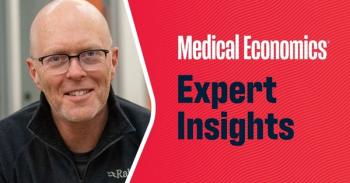
- Medical Economics May 2024
- Volume 101
- Issue 5
7 dispute resolution tips for physicians leading care teams
I have worked closely with many physicians as a full-time
1 Get trained. Although we all develop some ability to navigate conflict during our upbringing, there is much more to it than common sense. Start reading. Get trained. Training your staff in these crucial areas helps, too. The more conflict resolvers there are, the better.
2 Take psychological safety seriously.When each member of a medical team feels empowered to offer ideas and critiques without fear of retribution from supervisors or colleagues, when they do not need to be armored up to deal with harsh remarks at the coffee station, when they can be critiqued constructively, engagement soars. And the result is a workplace that is not only more pleasant but also more productive.
3 Understand the main styles of conflict. Broadly speaking, when confronted with conflict, some people become controlling, some accommodating, and some avoidant. These styles have been described, respectively, as high in assertiveness/low in empathy, low in assertiveness/high in empathy, and low in empathy and assertiveness.
It is useful to recognize your own conflict style and that of others. Once you understand that people approach conflict differently, you may be able to intervene in your own problems and those of colleagues differently and more sensitively.
4 Replace judgment with curiosity. When you hear someone recount a story of how a conflict started, you are likely to have an emotional response to what they say. Instead, when you feel the hairs on the back of your neck start to tingle or your brow starts to furrow, use these magic words: Tell me more about that. An open-ended invitation to expand is more helpful than making a statement.
5 Conflict can be productive. There are generally two kinds of conflict: task conflict and relationship conflict. Task conflict is defined as a disagreement about the best way to get something done. On the other hand, if the two colleagues start to take the disagreement personally, it becomes relationship conflict, and that is destructive. Many conflicts start as task conflict and turn into relationship conflict. If mindful of this distinction, you can have more of the productive kind of conflict and less of the destructive kind.
6 Caregivers need care too. Medicine is a high-stress field, especially now, with high demand for top-notch care and a shortage of personnel. To prevent conflict, arrange time for staff to decompress while on the job. Be supportive and use language that promotes a strong sense of self. Make lists of resources for mental health. Broadcast them widely and make clear that it is a good thing to engage in self-care and the care of peers.
7 Know when to enlist outside help. It is no more a sign of weakness to call in a conflict resolution professional than it is to have an accountant do your taxes or a plumber fix your leaking sink. It is a sign of wisdom and strength to know when you are in over your head.
Richard Birke is the chief architect of
Articles in this issue
almost 2 years ago
Getting involved in PA reformalmost 2 years ago
How growing out-of-pocket costs are disrupting primary carealmost 2 years ago
The benefits of a physician MBA programalmost 2 years ago
Navigating primary care partnershipsalmost 2 years ago
Is your practice complying with the law?almost 2 years ago
Physician job market: Doctors on the movealmost 2 years ago
Getting paid for prior authorizationsalmost 2 years ago
5 best practices for mitigating evolving health care cyberattacksNewsletter
Stay informed and empowered with Medical Economics enewsletter, delivering expert insights, financial strategies, practice management tips and technology trends — tailored for today’s physicians.






